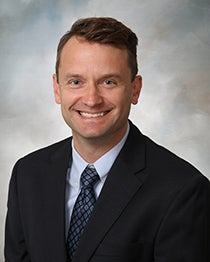What you need to know about brain swelling after a stroke
February 5, 2023Categories: Neurosciences, Stroke Care
Cerebral edema, also known as brain swelling, is a serious symptom that can occur after a stroke. Keith Kohout, MD, at MercyOne Ruan Neurology Care explains everything you need to know about brain swelling after a stroke.
What is cerebral edema or brain swelling?
Cerebral edema is the body’s response to the brain cells being damaged or killed by a lack of oxygen and blood supply. A stroke blocks the brain’s access to blood and oxygen supplies. The swelling is in response to the injury, like how an ankle swells after it is hurt.
What are the symptoms of brain swelling?
Symptoms of cerebral edema can look similar to those of a stroke. These can include:
- Headache
- Nausea
- Lack of coordination
- Numbness
- Difficulty swallowing
- Incontinence
More serious symptoms can result in:
- Urinary tract infection
- Change in conscious
- Deep vein thrombosis (DVT)
- Pneumonia
- Herniation (shifting of brain tissue)
- Death
How does brain swelling after a stroke affect the functions of the brain?
“The area of the brain affected by the stroke will affect what functions are hurt,” said Dr. Kohout. “By itself, cerebral edema does not cause specific function deficits.”
Areas of the brain being affected by a stroke can look like a frontal lobe stroke causing aphasia, difficulty with spoken language. Cerebral edema does not increase your risk of having another stroke.
Does a bigger stroke affect how much the brain swells?
In general, the larger the size of the stroke, the more likely brain swelling becomes. The brain has anterior (forward) and posterior (back) circulation. The space of the posterior circulation is smaller and in closer proximity to bone such as the base of the skull. A stroke in the posterior circulation has less space to swell before causing serious or life-threatening complications.
If you are experiencing stroke symptoms, call 911 or visit your local emergency department. To learn more about stroke prevention, contact your primary care provider or find one near you.


